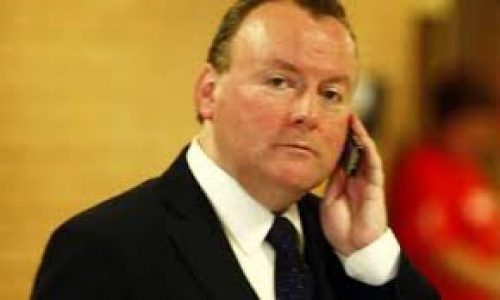
Veteran Labour press officer on the art of communication: ‘We frame a version of the truth’
David Hallam, a former West Midlands MEP and longstanding Labour party press officer, gives his views on the Damien McBride saga:
Let me declare an interest: I am a member of the Labour Party. So for purely tribal reasons I am annoyed and angry that Damien McBride has chosen Labour Party conference week to tell us that he is a nasty piece of work.
But I’m also annoyed and angry for another reason: McBride is routinely being described as a “press officer”. In so doing it tarnishes the job title that I have been proud to carry for much of my working life.
My first press release was published in 1961 (I was still at school) and I’ve been dealing with the media in one role or another ever since.
The world of plots, counter plots and I suspect a little fantasy, described by McBride in recent days is a world away from the real work of a professional press officer. McBride and his ilk assign to the press officer almost supernatural powers to big up allies and destroy opponents.
I’m pleased that the current Labour leadership and its press officers have very obviously turned their back on this sort of operation.
Press officers do have a certain way at looking at the world. One senior executive where I worked was involved in a car crash. Everyone else wanted to know if he was badly hurt. Obviously I shared that concern but I also wanted to know if he had been drinking and whether the female passenger was his wife.
Much of a press officer’s daily work is interesting but fairly mundane: monitoring the news, updating websites, writing press releases, anticipating problems, answering media calls, and planning strategy. Depending on the size of an organisation we may also be responsible for other tasks such as internal communications, staff awards, VIP visits or even for me on one occasion, the office artwork.
Part of the job is making sure you know how and what the “the boss”, the CEO or chair, actually thinks. This means that when confronted with a difficult press enquiry we can anticipate and prepare a response that will be acceptable to the organisation.
The one thing a press officer should never do is to tell lies, as McBride did. Sooner or later they get found out. McBribe’s own career proves the point. He left Number 10 under an enormous cloud with his reputation in tatters. We should never be too clever.
This doesn’t mean that a press officer “tells the truth, the whole truth and nothing but the truth”. We are not witnesses in a court of law.
When a difficult story is about to hit the front pages or airwaves there are competing or even contradictory narratives. There is always a dispute about the facts. It is a press officer’s job to get to the bottom of the story as quickly as possible, before anything is published.
Then we frame a version of the truth. Sometimes that means a robust response to allegations or facts that are incorrect. On other occasions it may mean putting our hands up and admitting our organisation got it wrong. Often the “truth” is somewhere in between.
In a competitive environment including, but not exclusively, politics, there are opportunities to brief against opponents and competitors. This is the area where McBride seems to think he excelled.
Sometimes this is done anonymously or “off the record” meaning that it’s not attributable to you. This is always high risk activity and should only be undertaken if you are sure of the facts, and can trust the journalists.
The big danger here is that you undermine the credibility of the entire industry, rather than a competitive brand. You never hear of airlines briefing about their comparative safety records. It was a disaster for the whole European beef industry when they turned on the British industry and created the BSE crisis.
So I read McBride’s revelations with an element of despair. I look back over nearly half a century as a press officer and I’m proud of what I have achieved. This has included protecting vulnerable families, supporting people wrongly accused, helping organisations improve their customer service, and generally improving the country in which we live. It hasn’t always been easy, but I hope I’ve always acted with optimism and integrity. And please don’t call me a “spin doctor”!
Related articles
Similar Articles
Dawn goes Down Under 1
It might appear that Birmingham city council changes its chief executives more regularly than its
Hezza: Give Metro Mayors greater powers to deliver housing, skills and jobs
Britain’s metro mayors should be given greater powers over housing, schools and jobs to truly
Mayoral Mayhem? A challenging year begins…
The Board of the West Midlands Combined Authority (WMCA) meets this morning for the first
Council: Panel stands down, but recommends another one pop up
The Panel set up to oversee improvements to Birmingham city council has disbanded itself and
Region needs more jobs, higher skills and better housing – report
A new report into economic injustice in Birmingham and the Black Country paints a stark










